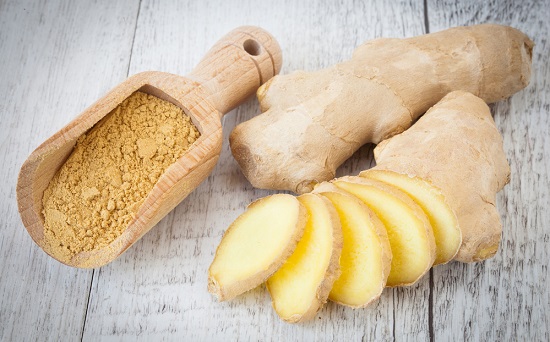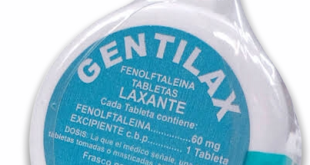Read about health benefits of ginger tea for weight loss and pregnancy. Benefits of ginger tea for acid reflux and digestive system problems.
Ginger is among the healthiest spices, and who wouldn’t like something being delicious and healthy at the same time? It’s a two-in-one sort of situation. Ginger is a flowering plant originated from China. Ginger as a herb and the rhizome (its underground part) are commonly used as a spice and also as a medicine. It is often called ginger root, or simply ginger. Ginger has some amazing healing qualities and health benefits.
Having a firm striated texture, ginger is the underground rhizome of the ginger plant. The flesh of the ginger rhizome can be in yellow, white or red color. Covered with a brownish skin, It could either be thick or thin, that depends upon whether the plant was harvested when it was mature or young. It is loaded with nutrients and bioactive compounds having health benefits for the body and brain. Aromatic, pungent and spicy, ginger adds a special flavor and zest mainly to Asian stir-fries and many fruit and vegetable dishes.
Fresh ginger root is available all over the year, in the produce section of your local market. The root or
underground stem (rhizome) of the ginger plant can be dried, powdered as a spice, in oil form, as juice, consumed fresh and is sometimes added to processed foods and even in cosmetics! Isn’t it just wonderful? It is a very common ingredient in recipes, mainly in Asian countries such as India, Pakistan, China, Thailand etc. Ginger is an ancient wonder spice. It is considered as “natural medicine chest” in ancient Ayurvedic medicine. The reason being this wonder spice has time-tested, digestion-friendly properties, along with several other health benefits.
Nutritional information and Benefits of Ginger Tea
Ginger clears the ‘microcirculatory channels’ of the body, including the clearing your sinuses that can flare up seasonally or during colder months like the cold weather we have now in most of the countries of the world. Many studies have suggested that increasing consumption of plant foods like ginger decreases the risk of obesity, diabetes, heart disease and overall mortality while promoting a healthy complexion and hair, increased energy and overall lower weight. We can consider a variety of uses and benefits of ginger in the following discussion.
Nutritional information
Using fresh ginger is an easy way to flavor foods and drinks without adding unnecessary sodium. It is usually consumed in such small amounts; ginger does not add substantial quantities of calories, carbohydrate, protein or fiber. Ginger does contain several other anti-inflammatory and antioxidant compounds beneficial to health such as gingerols, beta-carotene, capsaicin, caffeic acid, curcumin and salicylate. Ginger provides a variety of vitamins and minerals: Carbohydrate – 17.77 g, Dietary Fiber – 2 g, Protein – 1.82 g, Dietary Fiber – 2 g, Sugars – 1.7, Sodium – 13 mg, Vitamin B6 – 0.16 mg, Calcium- 16 mg, Iron – 0.6 mg, Vitamin C – 5 mg, Potassium- 415 mg, Magnesium- 43 mg, Phosphorus – 34 mg, Zinc – 0.34 mg, Folate- 11 mcg, Riboflavin – 0.034 mg, Niacin – 0.75 mg, Iron – 0.6 mg.
Benefits of Ginger Tea for digestive problems
Ginger has a long history of use for relieving digestive problems such as nausea, loss of appetite, motion sickness and pain. Ginger is commonly used to treat various types of “stomach problems,” including motion sickness, motion sickness, colic, upset stomach, gas, diarrhea, nausea caused by cancer treatment, nausea and vomiting after surgery, as well as loss of appetite. We must question that how does it work? Basically, ginger contains chemicals that may reduce nausea and inflammation. Researchers believe the chemicals work primarily in the stomach and intestines, but they may also work in the brain and nervous system to control nausea. Just had surgery? Chewing ginger post-operation can help overcome nausea.
Anti-Inflammatory effects of Ginger Tea
Ginger contains very potent anti-inflammatory compounds called gingerols. These substances are believed to explain why so many people with osteoarthritis or rheumatoid arthritis experience reductions in their pain levels and improvements in their mobility when they consume ginger regularly. In two clinical studies involving patients who responded to conventional drugs and those who didn’t, physicians found that 75% of arthritis patients and 100% of patients with muscular discomfort experienced relief of pain and/or swelling. Arthritis-related problems with your aging knees? Regularly spicing up your meals with fresh ginger may help, suggests a study published in a recent issue of Osteoarthritis Cartilage. Reeling under joint pain? Ginger, with its anti-inflammatory properties—can bring relief. Float some ginger essential oil in your bath to help aching muscles and joints.
Lower Blood Sugars and Improve Heart Disease Risks
This area of research is relatively new, but ginger may have powerful anti-diabetic properties. In a recent 2015 study of 41 participants with type 2 diabetes, 2 grams of ginger powder per day lowered fasting blood sugar by 12%. It also dramatically improved HbA1c (a marker for long-term blood sugar levels), leading to a 10% reduction over a period of 12 weeks. There was also a 28% reduction in the ApoB/ApoA-I ratio, and a 23% reduction in markers for oxidized lipoproteins. These are both major risk factors for heart disease.
Ginger Tea Induces Cell Death in Ovarian Cancer Cells
Lab experiments presented at the 97th Annual Meeting of the American Association for Cancer, by Dr Rebecca Lui and her colleagues from the University of Michigan, showed that gingerols, the active phytonutrients in ginger, kill ovarian cancer cells by inducing apoptosis (programmed cell death) and autophagocytosis (self-digestion). Ginger extracts have been shown to have both antioxidant, anti-inflammatory and anti-tumor effects on cells.
Immune Boosting Action of Ginger Tea
Ginger can not only be warming on a cold day, but can help promote healthy sweating, which is often helpful during colds and flus. A good sweat may do a lot more than simply assist detoxification. German researchers have recently found that sweat contains a potent germ-fighting agent that may help fight off infections.
Today, the top commercial producers of ginger include Jamaica, India, Fiji, Indonesia and Australia. The above mentioned benefits and usages of ginger would surely be very helpful in your everyday health care and life routine.
 Health & Care Information
Health & Care Information 


